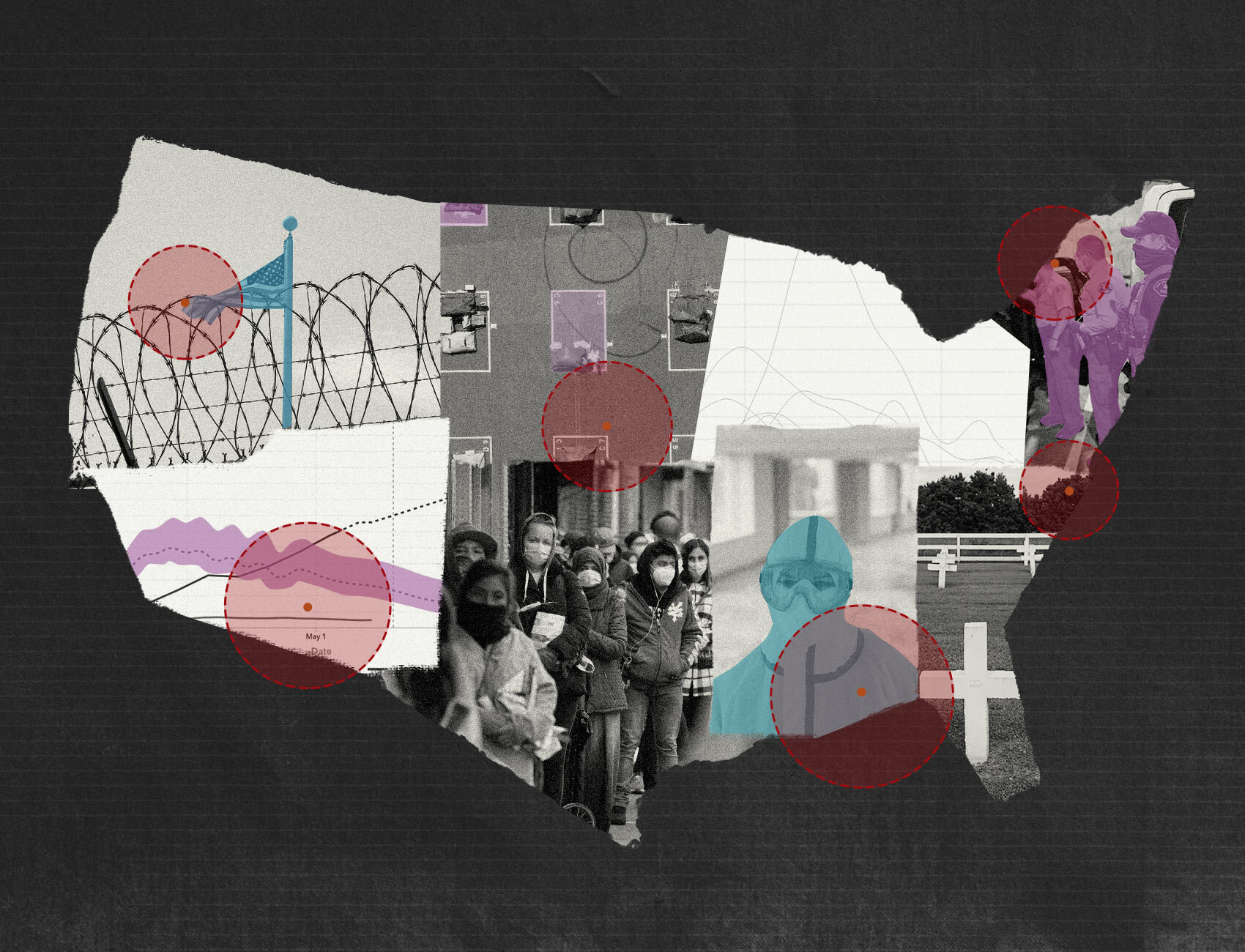Coronavirus In Jails And Prisons
Dozens of Vermont prisoners sent to an out-of-state private prison test positive for COVID-19, new study shows the prison infection rate is more than four times the general public’s, and Jay-Z’s Team Roc sues a Mississippi prison over “sub-human and deplorable” conditions.

Weeks before the first reported cases of COVID-19 in prisons and jails, correctional healthcare experts warned that all the worst aspects of the U.S. criminal justice system — overcrowded, aging facilities lacking sanitary conditions and where medical care is, at best, sparse; too many older prisoners with underlying illnesses; regular flow of staff, guards, healthcare workers in and out of facilities — would leave detention facilities, and their surrounding communities, vulnerable to outbreaks. Despite those early warnings, even jails and prisons that believed they were well-prepared have seen a rapid spread of the virus. Over the next several months, The Appeal will be examining the coronavirus crisis unfolding in U.S. prisons and jails, COVID-19’s impact on surrounding communities and how the virus might reshape our lives. Read recent posts here.
Vermont’s prison system is by far the smallest in the U.S. In mid-March, before COVID-19 started sweeping through correctional facilities, the state housed 1,393 people among six facilities. (Currently, Vermont prisons hold roughly 1,200 people.) While its prisons haven’t been spared from COVID-19, widespread testing shows an infection rate of about 4 percent. For comparison, California, which has tested roughly 60 percent of its prisoners, has a 12 percent infection rate.
But the numbers don’t reflect everyone in the Vermont Department of Corrections’ custody (VDOC). Since 1998, to avoid overcrowding, VDOC has sent between 250 and 350 people to out-of-state prisons. Currently, 219 Vermont prisoners are at the Tallahatchie County Correctional Facility in tiny Tutwiler, Mississippi (pop. 1,111). The prison, which holds more than 2,700 people, is run by private prison operator CoreCivic under a contract with the Mississippi Department of Corrections.
Last week, six prisoners who were sent back to Vermont from Tallahatchie tested positive for COVID-19, prompting testing of all the Vermont prisoners housed there. As of Sunday, 85 of them have tested positive, reports nonprofit news organization VTDigger.
Vermont Defender General Matthew Valerio told reporter Alan J. Keays that he expects that number to increase. “I don’t anticipate many people will be spared given the living conditions,” Valerio said. “Everyone is right on top of each other.”
Valerio said he’d received reports that guards at Tallahatchie had a “lax attitude” about wearing masks.
The outbreak has renewed calls by the Vermont ACLU for VDOC to cut ties with CoreCivic, whose contract with the state is up for renewal this year.
When Keays toured Tallahatchie in January 2019 for a VTDigger story, the two Vermont prisoners he was allowed to speak with had few complaints, though an attorney from the Vermont Defender General’s office told Keays she’d received multiple complaints about limited recreation time and lapses in prescription medication refills.
* A report by the Council of State Governments shows that the rate of COVID-19 infections in prisons has skyrocketed since mid-April, far outpacing the infection rate among the general public. On April 15, the infection rate for people in prison was 200 cases per 100,000 prisoners. In the general public, it was nearly the same, with 191 cases per 100,000 people. By July 26, the infection rate among prisoners had grown to 5,495 cases for every 100,000 prisoners compared to 1,272 cases per 100,000 among the general public.
* At the Chattooga County jail in Georgia, almost all 15 full-time staff members have either tested positive for COVID-19 or have shown symptoms, reports the Chattanooga Times Free Press. And yet, the newspaper reports, none of the 38 people incarcerated at the jail have been tested. The jail’s contract medical provider won’t test anyone who’s not showing symptoms. Sheriff Mark Schrader told the newspaper that he had asked the county’s public health department to help with testing but was told he would have to wait up to a month for results.
* On Saturday, 15 people protested outside FMC Carswell, a federal medical prison for women in Fort Worth, Texas. Cases of COVID-19 at the facility grew to 571 last month and three women incarcerated there have died of the virus.
* In a Friday press release, the Florida Department of Corrections announced Secretary Mark Inch and Deputy Secretary Ricky Dixon have tested positive for COVID-19. Last week, both men attended a Florida Sheriffs Association conference and visited the Columbia Correctional Institution in Lake City, where COVID-19 has infected 1,300 prisoners and 73 staff.
* For-profit healthcare provider Centurion announced it was cutting ties with the Mississippi Department of Corrections after Team Roc, a nonprofit created by the rapper Jay-Z, filed a class-action lawsuit on behalf of people incarcerated at the Mississippi State Penitentiary. Marc Stern, a correctional healthcare expert who inspected the facility as part of the lawsuit, said it was the worst he’s seen, with “sub-human and deplorable” conditions. Centurion told CBS News that it wouldn’t be able to improve the level of care “without additional investment” from the corrections department.
* The San Jose Mercury News tells the story of Sgt. Gilbert Polanco, a guard at California’s San Quentin prison, which has been hit hard by COVID-19. Despite taking precautions to keep him and his family safe from the virus, Polanco fell ill in late June. His wife and daughter also tested positive, but have recovered. Polanco, who worked at the prison for more than three decades and was one year from retirement, is on a ventilator and has had to undergo multiple rounds of dialysis to save his failing kidneys.
